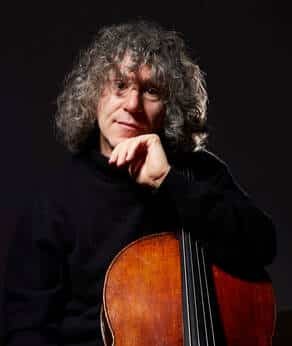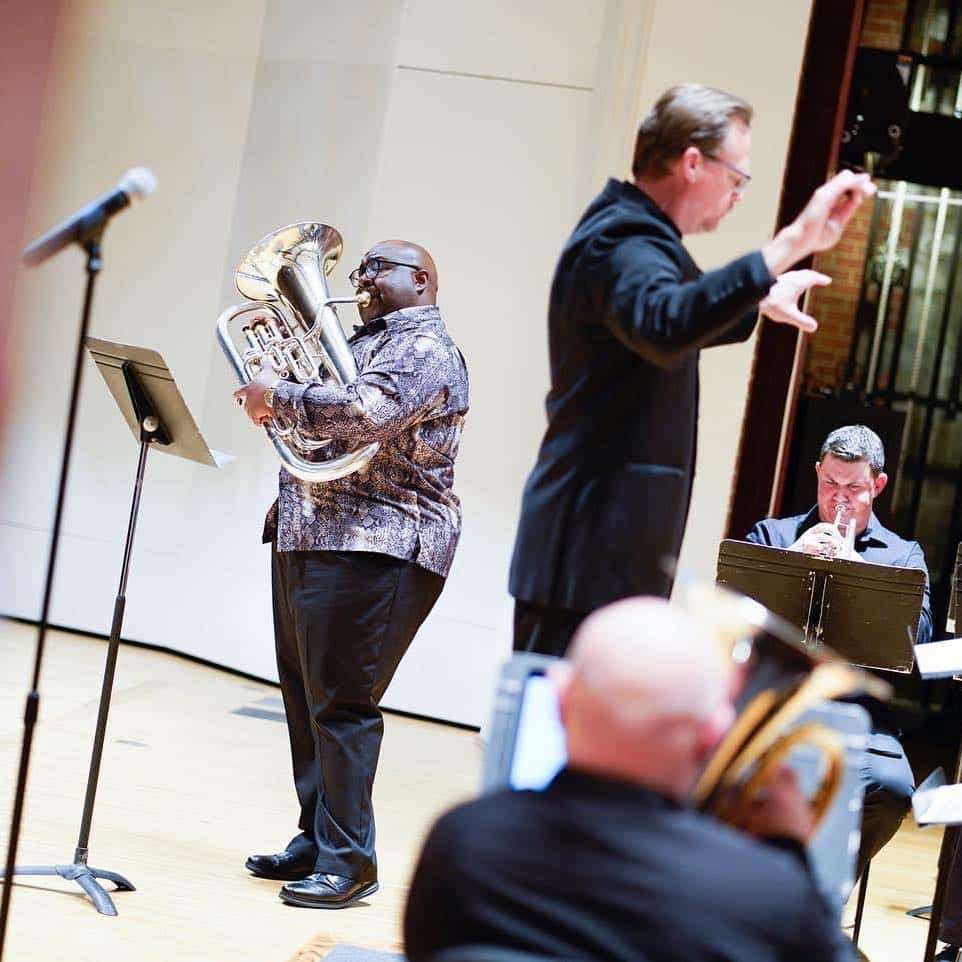A day for German music to examine its conscience
Comment Of The DayComment of the Day from William Osborne:
Today, November 9th, is a mixed sort of special day in Germany. It is the day the Berlin Wall came down, and the anniversary of the Kristallnacht in 1938. In two nights of lawlessness, the Kristalnacht rioters destroyed 267 synagogues throughout Germany, Austria and the Sudetenland. Over 7,000 Jewish businesses were damaged or destroyed, and 30,000 Jewish men were arrested and incarcerated in concentration camps. Early reports estimated that 91 Jews had been murdered, but modern historical analysis puts the number much higher. Historian Richard J. Evans estimates 638 suicide deaths as a consequence of the pogrom.
November 9th is also a day to celebrate German unity (and even the American contributions to that cause,) a day to be thankful that Germany is a far better country than in 1938, and a day to soberly contemplate the rise of right-wing populism in Europe and North America.
Will we ever fully understand the history of Nazism and the Holocaust without better understanding the cultural foundations that produced them? To this day, a cultural approach to understanding this history remains an almost taboo topic and still evokes a great deal of distress, denial, and resentment.
Classical music is one of the most informative cultural areas to examine because it was so closely tied to the regime, and because it serves reasonably well as a microcosm of society. Why did the Berlin and Vienna Philharmonics collaborate so strongly? Why were forty-seven percent of the Vienna Philharmonic’s members National Socialists, and why did so many belong to the party well before 1938 when it was still illegal in Austria? Why did the Vienna Phil give its highest award, the Ring of Honor, to the Gauleiter of Vienna, Baldur von Schirach, who was directly responsible for the deportation of 64,000 Austrian Jews to their deaths? Why did the Philharmonic re-issue the ring to the convicted war criminal Schirach in 1967 after it was lost during his 20 year incarceration in the Spandau Prison in Berlin? Why has the Philharmonic historically held the view that Asians would destroy the orchestra’s image of Austrian authenticity? Is this racist and correlated to Nazi concepts of racial and cultural purity? Why does the Philharmonic not have any fully Asian members to this day—something that sets it far apart form most every major orchestra in the world?
What is the correlation, and possible cause and effect, between this history and that the Austro-Bavarian region of Europe remains one of the strongest areas of hard right, far-right, and right-wing extremist thought in Europe? How did this cultural basis influence the rise of National Socialism (Nazism)? Are there cultural characteristics that caused Hitler refer to Munich as his spiritual home, and that allowed him to build the Nazi Party there?
Germany and Austria are paradigmatic for classical music. Can we gain insights into the nature of Western classical music by closely studying this cultural history? Or does classical music, as some insist, exist in a cocoon largely isolated from the world around it? Did this history shape some of values that shape the nature of our music, or is it a form of pure thought with only a limited social basis?







Wow. What stunning insights. I’m can’t believe that nobody in Germany and Austria has really talked about the legacy of Nazism up till now until Mr Osborne pitched up here and read them the Levites, wie man im Vaterland zu sagen pflegt. Still, better later than never!
The issue is not the legacy of Nazism (a topic relatively well-covered,) but its long-standing cultural foundations in European history. If you or anyone else can provide bibliographic references to such work, it would be most welcome. It’s a topic that seems strangely meager in the literature.
This is a nice example of cultural paranoia.
The reason that there is a remarkable absence of books on the topic of ‘the long-standing cultural foundations of nazism in European history’ is, that there are no longstanding cultural foundations of nazism in Europe, or anywhere else.
Nazism was the primitive outgrowth of resentment and anger in an imploded society after 1918, where certain historically-defined ideas got mobilized by paranoid fanatics who had read Darwin and Nietzsche completely wrongly, and combined this with national chauvinism and antisemitism which had grown into a salonfähig cultural meme in the uprooted 2nd half of the 19th century. What ‘longstanding cultural foundations’? Nazism was a historic abberation, and its longstanding foundation was the layer of primitive resentment and anger of groups that are always present in every society, as we can see nowadays all around us.
Culture, like classical music, painting, literature, has nothing to do with this. Combining it with low life and social ills, and burden it with large-scale crime, is a form of populism, or worse.
You contradict yourself by noting things that were indeed part of the cultural basis of National Socialism: people reading “Darwin and Nietzsche completely wrongly, [who] combined this with national chauvinism and antisemitism which had grown into a salonfähig cultural meme in the uprooted 2nd half of the 19th century.”
We might also note that if Nazism were just a historical aberration (a radical assertion,) that would need to be substantiated by historians, but there are no serious studies that substantiate that thesis. If you know of any, cite them.
The Third Reich and the Holocaust are such complex historical phenomena that they can only be understood through many different approaches by many different scholars. And even with that, it will probably be centuries before we have a fuller knowledge and understanding.
In the meantime, you will continue with what in my view is your persistent intellectual weakness that your way of seeing things is the only way. You are generally incapable of considering ideas outside of your fixed and obsessive norms. This rigidity and narrowness of mind leads to dogmatic superficiality.
” And even with that, it will probably be centuries before we have a fuller knowledge and understanding.”
Okay. While it’s always comfy to focus on the dead Nazis (because nothing can be done about them now), it’s the alive ones that we should worry about.
You are (for all good reasons) focused on Germany and A*stria. And that’s okay. But you should not forget that fascism and racism isn’t an exclusive German thing. It’s a people thing. Any, I may have mentioned that before: People are stupid. Always were, always will be.
It’s not about forgetting the past and moving on. It’s about not ignoring what’s happening now.
I agree completely that these problems are not singular to Germany and Austria. People in other countries, such as the USA with Trump, the UK with Brexit, and Italy with Berlusconi, can learn much about their own problems through a closer study of what Germany and Austria went through. We are all culturally closely related. That is one of the main reasons I feel the sort of cultural analysis I mention is important.
“People in other countries, such as the USA with Trump, the UK with Brexit, and Italy with Berlusconi”
Yes. And the list goes on and on and on… So depressing.
“That is one of the main reasons I feel the sort of cultural analysis I mention is important.”
I would’ve gone with the obvious political analysis, but you’re right, there’s plenty of it already. I still think that the political aspects are the ones most contributing to anything that happens or has happened in the world, but yes, that doesn’t mean the cultural aspects should be neglected.
Perhaps the EU could learn a little more about its “own problems”. It might even be able to manage the growing Poland/Belarus tension without actually making things worse.
” your persistent intellectual weakness that your way of seeing things is the only way” Look who’s talking! Pure projection, Mr. Osborne.
As usual, mr Osborne seems to want ‘classical music’ as an art form to be discovered as a perfidious instrument in the service of racism, fascism, white suprematism, and European crime all over the world, because of its inherent fascistoid nature. But he apparantly forgets that the aura of high art, which surrounds the art form, is always the perfect cover for low life that wants to obtain a façade of respectability so that evil can get undetected. Why wanted the kings of old live in beautiful palaces and collected the best paintings in the world? To show their benign rule, legitimacy and high standards. So it is with classical music, and it can be exploited by bad people. Don’t blame the art form for the crimes of its abusers.
The philosopher George Steiner claimed in his ‘In Bluebeard’s Castle’ that the holocaust finished-off European culture, and complained that classical music did nothing to stop concentration camp brutes from torturing inmates before they wept during a Schubert lieder recital in the evening. So, when psychopaths did not understand what classical music is, this must be a failing of the art form. I rather think this ‘reasoning’ is another form of psychopathy.
https://en.wikipedia.org/wiki/In_Bluebeard%27s_Castle
Thanks to this kind of ‘thinking’, postwar sound art took deep roots in German lands, destroying any remnant of their own musical tradition in creative terms, resulting in the schizophrenic situation of a concert practice where existing repertoire got performed as a museum culture, and a new music scene where the psychopathy of Klangkunst had to signal progress towards a free, democratic, progressive, utopian society with pure humanist values. This destroyed, for the second time, the career of Walter Braunfels, a perfectly decent traditional composer who was sidelined by the nazis because he refused to collaborate with them, and who got rejected after the war for not writing sound art and thus for ‘not being progressive’. This kind of psychopathy produced ‘composers’ like Stockhausen, Kagel, Lachenmann, Friedrich Haas, Miss Neuwirth (‘punk music’), all types of fierce rejection of a musical tradition that produced Bach, Mozart, Haydn, Beethoven, Brahms, Wagner, Bruckner, Mahler, Strauss. All ‘wrong music’ of course, symbol of a perfidious past because the nazis liked it and used it. So, the Darmstadt Summer Courses and the Donauesschingen festival were set-up to keep the flame of progress burning, as far as possible removed from the cocoon of the performance museum culture. This shows the neurotic nature of German postwar reactions towards classical music, but which have nothing to do with the music itself.
“the aura of high art, which surrounds the art form, is always the perfect cover for low life that wants to obtain a façade of respectability so that evil can get undetected.”
Good point, and it’s not confined to totalitarian regimes. Don’t thugs at the top of the criminal underworld do exactly the same?
I’m not so well-acquainted with the top of the criminal underworld of lately, but I guess it would be true.
Fascism was embraced by a wide spectrum of German and Austrian society. The vast majority were not criminals trying to mask their actions with art. The question at hand is if there were a cultural basis to this wide acceptance of National Socialism. This would also help us better understand the attempts of postwar German modernism to alter this culture, even if one might not agree with the solutions they have offered.
Obviously, appealing to the cultivation of classical music – which was a strong cultural identifyer, compensating for the social misery – had to create trust in the regime. When fascism was embraced by, let us say, normal bourgeois people in the twenties and thirties, it is clear that the dark shades of the policies were not understood – when have the electorate fully understood the implications of the parties they elect? Did the millions who voted for Trump realize what they were helping into existence? And then, the nazis before 1938 had not as yet shown their real face.
In other words: there is no argument to be found there, other than that most people are stupid or simply don’t think.
One again you contradict yourself. Yes, classical music was a strong cultural identifier, and one used to assert attitudes of superiority. Yet another aspect of the cultural values that supported Nazism. See: Pamela M. Potter, “Most German of the Arts: Musicology and Society from the Weimar Republic to the End of Hitler’s Reich” Yale University Press, New Edition (Oktober 1, 1998)
We should also note that the Kristalnacht and the many pogroms that followed, were already enough to show that Nazism should have been rejected. And yet it was widely embraced through a complex set of cultural beliefs–some of which you note yourself. And since you raise the topic of Trump, I think similar things are happening in the States.
” And yet it was widely embraced through a complex set of cultural beliefs”
That may have been a factor, too, sure. But I think it’s way easier.
1. People are unhappy. If it’s for imagined or real reasons doesn’t matter at all.
2a. Party A has a solution, but it’s complex and boring (if it’s a real problem) or dismisses it (imagined problem, “War on Xmas”).
2b. Party B does not have a solution but blames others and offers more made-up problems that people can rage about.
3. People don’t like complexity and boring but they like blaming others and rage about stuff. And conspiracy theories are a great way to feel less stupid, too, because that way you are smarter than any scientists ever. Just watch that video on youtube!!!!!!11!
4. Populists know and use that.
5. There are more stupid people than less stupid people.
And the majority goes to… Yup, them.
It all boils down to education. Democracy heavily relies on education. If you want to know how deep in trouble we are, just talk to people. Not friends, them we choose. But other people.
I’m learning that many of my “friends” are no better than “other people”.
“Democracy heavily relies on education.”
Very true. And this is, inevitably, the great weakness of democracy, especially in populist times.
“One again you contradict yourself. Yes, classical music was a strong cultural identifier, and one used to assert attitudes of superiority. Yet another aspect of the cultural values that supported Nazism.”
I thought the explanation was clear enough, but because of the triumphant look of my PA on spotting this reply, I feel forced to closer examine the misunderstanding. When a cultural signifyer is appropriated, one has to consider who the appropriating party is and what it wants to do with the signifyer. When certain groups in the late 19th century and early 20th century appropriated classical music to support their nonsensical claims of racial superiority, the suitability of the art form for such purpose is comparable with the appropriation of the word ‘great’ or ‘beautiful’ for something which is the opposite. We don’t cancel the use of the words ‘great’ and ‘beautiful’ because it was used by cranks. There is nothing racist or antisemitic in classical music. That it is a ‘superior art form’, without any reference to something else, is a fact for anybody who has come to understand it, and for which no references to any other art form or ethnic groups is necessary. That not all more or less sane people don’t quite understand this, is merely a sad aspect of humanity – which keeps such misunderstandings alive, even in our own time.
A cultural value is a value in itself, and not inherently supporting political parties. So, it is impossible to demonstrate an inherently nazi supporting value in classical music.
I hope this is enough, although I hear my PA tut tutting in the background.
You’re suggesting that if you were there you’d have been one of the good guys. Clue: the good guys were very thin on the ground then for much the same reason that group-thinkers exists in the developed world today.
Can we please stop using outright Nazi propaganda terms to describes historical events? “Kristalnacht” (sic!) are November pogroms that didn’t just last one night and there certainly wasn’t a anything sparkling about them.
Actually, that is historically inaccurate. The Nazis had a tendency to name all sorts of events with stupid names. “Kristallnacht” was never a Nazi term, but rather the Berlin population mocking the Nazis by inventing a name that somehow sounded like a Nazi term, but really was not.
You are not alone. That information is virtually lost in Germany today, where Kristallnacht is normally referred to as “Pogromnacht”. That term is accurate, of course. But honoring the anti-Nazi wit of Berlin by sticking to the original Kristallnacht also has its merits.
During your sober contemplation of the rise of right-wing populism, just take care not to wander into the wrong neighborhood. Unless of course you have the good sense to live away from the city.
There’s a new term afoot; “luxury beliefs”. It’s when you can afford such things as “defund the police” from the safety and security of your exclusive suburb or ‘monogamy is an outdated colonialist, white privilege…..’ – the very things which will further disadvantage people who have the odds already stacked against them. The Left is never intelligent enough to draw these dots, so busy are they wagging their fingers at everybody else.
I want to hang out with all of you for hours and hours in my free time…….so much fun…..
Yes, that’s what we need; more fun.
Fun? On this site?
Sally
November 9 is also the date that Kaiser Wilhelm II abdicated (1918) and the date of the Beer Hall Putsch (1923).
who is William Osborne? I would appreciate some info. I know of Conrad L Osborne, opera critic, but never heard of William Osborne. Thanks
http://www.osborne-conant.org/bios-m.htm
William Osborne is an American composer, and apparently very much part of the Austro-Bavarian/German cultural landscape:
he lived in Munich for more than a decade and was awarded a “prize from the Theater Commission of the City of Munich” .
his works have been widely performed in Germany at “the Munich Biennale, The Stuttgarter Tage für Neue Musik, The Hamburg State Opera, The Bavarian State Opera, The Freiburg Theater Festival, The State Theater of Kassel, Frankfurt’s Theater am Turm, Munich’s Gasteig Cultrual [sic] Center”.
And I’ve lived in Germany for 41 years.
Examine Martin Luther for a bit of insight into the German mentality viss a vis anti Semitism
https://en.wikipedia.org/wiki/On_the_Jews_and_Their_Lies
“Examine Martin Luther for a bit of insight into the German mentality viss a vis anti Semitism”
There was an interview with Helene Fischer the other day. Gave me a bit of insight into the mentality of Helenes.
lucky you. share the Fischer interview with us please.
“lucky you. share the Fischer interview with us please.”
My pleasure.
https://www.zeit.de/2021/45/helene-fischer-musikbranche-werdegang-schlagermusik-privatperson
But since you Helenes all share the same mentality, there’s is – of course – nothing new for you in there, I’m afraid.
so what’s the point of wasting precious time and space.
“so what’s the point of wasting precious time and space.”
You asked for it, didn’t you. So. You’re quite welcome.
begging your pardon, i was referring to your original statement about Helenes. and you are not welcome
I think his original statement about Helene’s was meant as a jokeo
I found this an offensive rant, linking the past to the VPO and also the American right – which has ZERO institutional power compared to the Left in the USA. Their storm-troopers are Antifa.
the American right – which has ZERO institutional power compared to the Left”
This is so wrong I just wouldn’t even know where to start.
Antifa hardly have institutional power.
Revised:
Why did X % of Austrian bakers support Nazism and what is the confectionary impact on the Sacher Torte on National Socialism? Why did other other Europeans countries with musical cultures not dissimilar from Germany/Austria not support fascism? I would guess it’s probably because the two are not closely related. And I would guess that there were Nazis in the Vienna Philharmonic due to the same political/economic powers that drove many bakers to also be Nazis. But if I’m wrong what are the answers to some of the questions that you posit since I’m not really sure how you’re claiming that the two are even related. If there is relationship what what is the cause and effect as you ask but don’t answer? And btw, there is a lot of far right activity in other parts of Europe as well as the rest of the world so I don’t think the relationship you’re suggesting would stand up to even the least stringent statistical analysis.
Many years ago in a sociology class I took, I remember reading an article about the evils of the tomato. (Did you know that it’s documented that well over 90% murderers eat tomatoes?) If I didn’t know better I might think your essay was a similar professorial demonstration in logical fallacy. Reading it, it’s pretty clear that you don’t have a science background.
But Einstein loved tomatos and invented the atomic bomb.
Well…. that’s not even a logical fallacy since it’s not even a true statement. Einstein wasn’t involved in the development of nuclear weapons mush less did he invent them. But good luck with your thesis.
He’s writing a book on vegetables and their influence on totalitarian ideologies and why it’s all wrong. I don’t think it’s very interesting, I’m a broccoli fan.
Sally
Nazi: These books are not Nazi and must be burned.
today: No, Nazism was a terrible mistake- we know much better now: Any books not burned by the Nazis are *Nazi books* and must therefore be burned.
Yes, it was all terribly monstrous and should never happen again, anywhere. But can we please stop holding The Wrong Generation of Germans hands’ to the fire!?! Today’s Germans had nothing to do with it. Campaigns of ethnic cleansing – or religious cleansing, or gay cleansing, etc. – is not unique to Germany. Part of my ethnic background is Spanish, as in Castilian Spanish. As such, we committed plenty of atrocities all over the place – it just happened to be farther back in time. We are any less guilty? Blood is pretty much on the hands of all of humanity. Granted, the Holocaust was an extreme example of it.
“Today’s Germans had nothing to do with it.”
Indeed. It is entirely un-ethical to burden people with the guilt of their ancestors.
Leaving aside the ridiculous amount of puffery and outrage in these comments, why *did* the Vienna Phil reissue the ring 20 years later? Does anyone here actually know?
It is thought that the person most involved with issuing the ring was the orchestra’s famous first trumpeter, Helmut Wobisch who was a deeply committed and unrepentant Nazi. He jointed the party five years before the Anschluss, and after the Anschluss given positions and titles by the Nazis. He was removed from the orchestra after the war through the Allies de-Nazification process, but returned to it in 1950. In 1958, he was also given a professorship at Vienna’s University of Music. And in 1967, he was given the Große Ehrenzeichen für Verdienste um die Republik Österreich. At the same time, the orchestra discretely reissued the ring to Baldur von Schirach. (Who by the way had American an American mother and did not begin speaking German until he was five.) If one were to study the Berlin and Vienna Philharmonics to try to better understand the cultural underpinnings that led to fascism, Wobisch would be one example of a good case study.
There are no cultural underpinnings that led to fascism. There were paranoid cranks who, in their sick mind, combined the best and the worst of humanity.
“How should we react if a thoroughly evil, sadistic, degenerated mind of one of the most immoral, diabolical criminals correctly explains the Pythagorean theorem? That he is not as demented, as immoral as we thought? That the Pythagorean theorem must somehow be evil as well to be capable of being explained by a criminal?”
If you are a vegetarian, does that mean you cultivate fascist ideas? Because Hitler was a vegetarian. Also he loved dogs. What about THAT?
https://subterraneanreview.blogspot.com/2018/08/entartete-kunst.html
When will we have a remembrance day for the 100 million victims of communism? It still continues today in Hong Kong, Tibet, Xinjiang, North Korea, Cuba , Venezuela ….Some people have even the front to call themselves communists.
Indeed. All totalitarian systems result in crimes against humanity and civilization.
The systematic murder of millions of Jews required tens of thousands of individuals to look away, to shed their humanity, or, for some, to actively participate in killing.
There were true believers in Nazi ideology who embraced the violence. Others were lured in by a culture that offered camaraderie, dulled inhibitions with alcohol, and created a celebratory atmosphere through music.
We might pose the same questions about German dentistry as they were the most committed Nazis for obvious reasons.
These questions about cultural antisemitism and Nazism, and its legacies, have been raked over in great depth for the last 70 years, and answered quite adequately in the historical literature. Posing a series of plausibly related questions is rhetorical display.
Even so, orchestras and other organizations, today need to respond to the issue and to have proper polices, instead of tradition to fall back on. Rather like the British House of Lords and the antiquated British political system needs an overhaul.
“These questions about cultural antisemitism and Nazism, and its legacies, have been raked over in great depth for the last 70 years, and answered quite adequately in the historical literature.”
The issue isn’t cultural anti-Semitism, but the *cultural* foundations of Nazism. Can you site some of the literature you mention? I do not think it exists.
To mind my, your expression that the topic has been “raked over the coals” belies a form of denial.
Well, one word comes to mind… Anschluss.
Which people in europe gave the reigns of their country to Hitler?
Only one comes to mind
Austria.
It tells much of the people i think
Every aspect, including studying cultural history or classical music, should be questioned, researched, (re)considered in order to try to better understand what led to the rise of the Nazism and its horrible consequences. It should also be done, what is extremely important, in order to prevent any possibility of anything remotely similar to the Holocaust to happen again, because the antisemitism is again around us and in that sense it would be indispensable for researchers from Austria and Germany to get involved in these attempts and to detect and recognise the ominous signs and to stop their possible development.
For instance, to start with one can try to get the official answer from the VPO about what was the reason for giving the Ring of Honour to Gauleiter of Vienna, Baldur von Schirach, and why did they decide to reissue the ring, because such decisions are always documented.
Personally, I don’t believe that the fact that the WPO and BPO were close to the Nazi regime had anything to do with the classical music, as one of the undeniably basic substances of Austrian and German cultural foundations, but it certainly had to do with the human weakness and the impassive thirst for power. Those people wanted to be a part of the new elite, close to the top of then new political system. While the antisemitism had existed in various forms for centuries the radical, and later brutal, antisemitism of the Nazi party was not a problem for them, as it was not for the vast majority of people (not only in Austria and Germany). On the contrary, it was widely accepted and many became the perpetrators.
Irrespective of the different kinds of influences and values that shape and articulate the way we think and, what is more important, the way we actually (re)act, it’s always a matter of one own’s choice and decision, of one own’s responsibility. And as to music, I think it was George Steiner who asked why didn’t the music stop playing (since musicians did not) while the trains with deported Jews were heading for Auschwitz.
Kristallnacht, the great moral test the world failed
On the night of November 9-10, 1938, the destruction of European Jewry began with Kristallnacht, the Night of Broken Glass. It was a widespread pogrom against the Jews of Germany and Austria. Over 48 hours, firemen stood idly by as fires consumed synagogues, as police helped the rioters.
83 years ago, the world faced one of history’s great moral tests. It failed miserably. Learn the facts, visit http://www.aboutholocaust.org